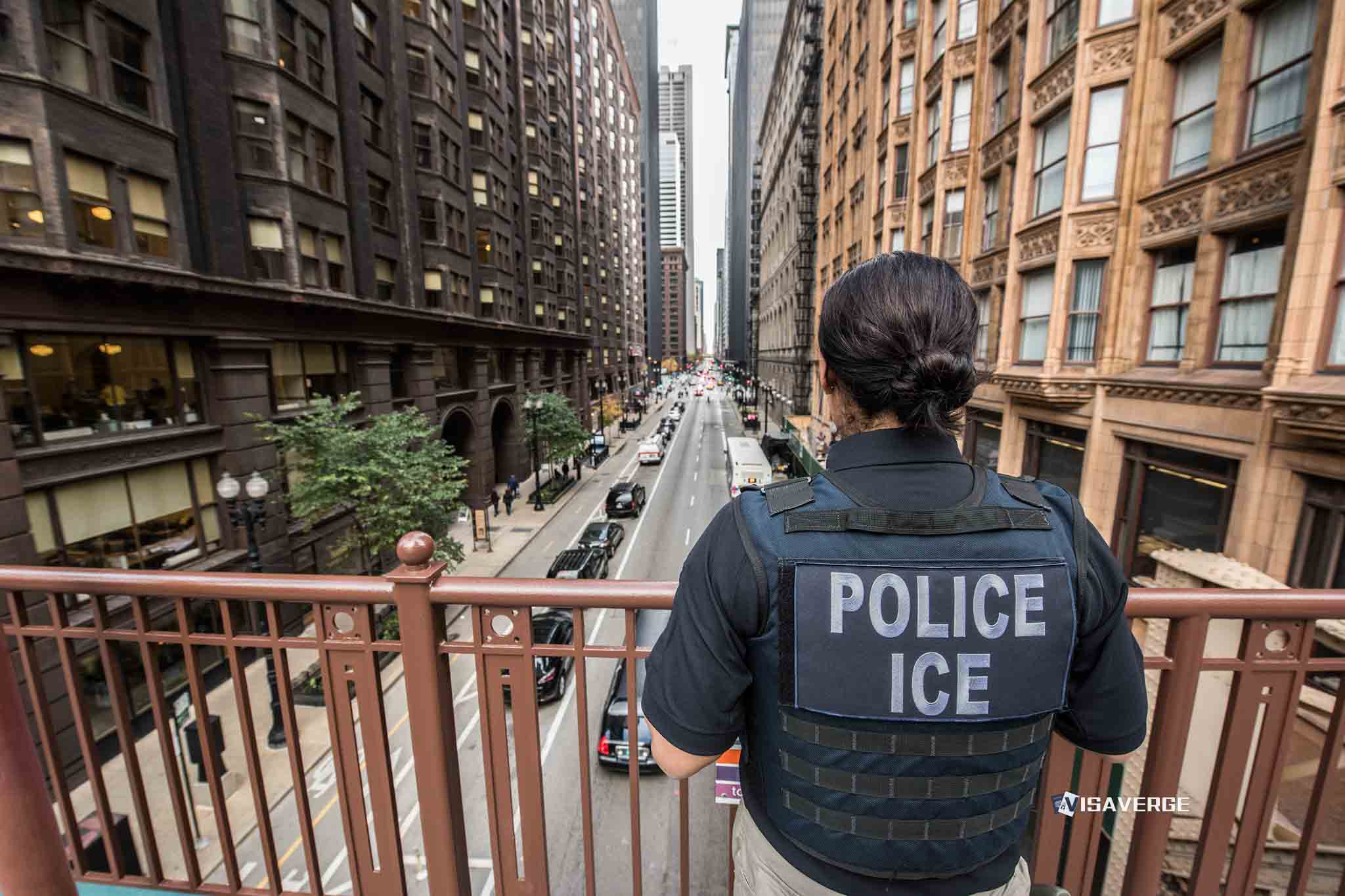Key Takeaways
• Rep. Andy Barr introduced a 2025 amendment to end birthright citizenship without legal parent status.
• Supreme Court ruled federal government can temporarily restrict birthright citizenship in some states.
• Birthright citizenship debate deeply divides Americans; 50% support, 49% oppose children of undocumented immigrants.
A major debate over who gets to be a citizen in the United States 🇺🇸 has reached a new level. On June 28, 2025, Rep. Andy Barr, a Republican from Kentucky, introduced a constitutional amendment in Congress. His goal is to end birthright citizenship for children born in the United States 🇺🇸 unless at least one parent is a U.S. national, a lawful permanent resident, or a person with legal status serving in the U.S. military. This move comes as legal and political fights over the meaning of the 14th Amendment’s citizenship clause continue to heat up.
This proposal could change the lives of hundreds of thousands of children born in the United States 🇺🇸 every year. It also raises big questions about what it means to be American, how the country treats immigrants, and how the Constitution is interpreted. Here’s what you need to know about the latest developments, what’s at stake, and what might happen next.

What Is Birthright Citizenship and Why Is It Controversial?
Birthright citizenship is the idea that anyone born on U.S. soil automatically becomes a U.S. citizen, no matter who their parents are. This rule comes from the 14th Amendment, which was added to the Constitution in 1868. The amendment says, “All persons born or naturalized in the United States, and subject to the jurisdiction thereof, are citizens of the United States.” For more than 150 years, this has meant that almost every child born in the United States 🇺🇸 is a citizen, except for children of foreign diplomats.
But not everyone agrees with this rule. Some lawmakers, including Rep. Andy Barr, argue that it encourages illegal immigration. They say people come to the United States 🇺🇸 just to have children who will automatically be citizens. Supporters of birthright citizenship, on the other hand, say it is a basic right that helps keep families together and reflects the country’s values of fairness and equality.
Rep. Andy Barr’s Amendment: What Would Change?
Rep. Andy Barr’s amendment would make a big change to the Constitution. Under his proposal, a child born in the United States 🇺🇸 would only get citizenship at birth if at least one parent is:
- A U.S. national (someone who owes loyalty to the United States 🇺🇸, such as a citizen or someone born in certain U.S. territories)
- A lawful permanent resident (someone with a green card who is allowed to live and work in the United States 🇺🇸 permanently)
- An alien with lawful status serving in the U.S. armed forces
If neither parent meets these requirements, the child would not automatically become a U.S. citizen, even if born on U.S. soil. Rep. Barr says this change is needed to “protect America” and to end the debate over citizenship for children of illegal immigrants.
Why Now? The Political and Legal Background
This amendment comes at a time when the issue of birthright citizenship is already in the spotlight. President Trump has long called for an end to birthright citizenship and has issued orders to try to limit it. On June 27, 2025, just one day before Rep. Barr introduced his amendment, the U.S. Supreme Court made a major ruling. In a 6-3 decision, the Court said the federal government could temporarily end birthright citizenship in some states, following an order from President Trump.
However, the Supreme Court’s decision does not apply everywhere. For example, Colorado’s Attorney General Phil Weiser quickly announced that birthright citizenship is still protected in Colorado, no matter what the federal government says. This means that, for now, there is a patchwork of rules across the country, with some states following federal orders and others keeping birthright citizenship in place.
How Does the Amendment Process Work?
Changing the Constitution is not easy. Rep. Barr’s amendment is just a proposal right now. For it to become law, it would need:
- Approval by two-thirds of both the House of Representatives and the Senate
- Ratification by three-fourths of the states (38 out of 50)
This is a very high bar, and most proposed amendments do not make it all the way through. Until that happens, birthright citizenship remains protected by the 14th Amendment.
What Does the Supreme Court Ruling Mean?
The Supreme Court’s June 27, 2025, ruling is important for several reasons:
- It allows the federal government to restrict birthright citizenship in some states, at least temporarily.
- It limits the power of lower courts to issue nationwide orders that block federal policies. This means future cases about birthright citizenship might only affect certain states, not the whole country at once.
- It leaves the legal question unsettled. The Supreme Court could take up the issue again in the future and make a more final decision.
As reported by VisaVerge.com, legal experts expect more lawsuits and court battles over this issue in the coming months and years.
Public Opinion: A Nation Divided
Americans are split almost evenly on the question of birthright citizenship for children of illegal immigrants. According to a Pew Research Center survey from June 2025:
- 50% of U.S. adults support birthright citizenship in these cases
- 49% oppose it
The divide is even sharper along party lines:
- 74% of Democrats support birthright citizenship for children of illegal immigrants
- Only 25% of Republicans support it
Support also varies by race, ethnicity, and whether someone is an immigrant. But the overall picture is clear: this is one of the most hotly debated issues in American politics today.
Key Stakeholders: Who Stands Where?
Several important people and groups are involved in this debate:
- Rep. Andy Barr (R-Ky.): He is leading the push to end birthright citizenship for children of illegal immigrants. He says it is about national security and controlling immigration.
- President Trump: He supports ending birthright citizenship and has taken steps to do so through executive orders.
- Colorado Attorney General Phil Weiser: He is fighting to keep birthright citizenship protections in Colorado, even as federal rules change.
- Legal Experts and Advocacy Groups: Many say the legal question is far from settled. Some worry about the impact on children who could be left without any citizenship, while others argue that the current system encourages illegal immigration.
What Would Happen If the Amendment Passes?
If Rep. Barr’s amendment becomes part of the Constitution, it would mean:
- Children born in the United States 🇺🇸 to parents who are not citizens, permanent residents, or legal military members would not automatically be citizens.
- This could affect hundreds of thousands of children born each year to undocumented immigrants.
- These children might not have citizenship in any country, depending on the laws of their parents’ home countries. This could create a group of “stateless” children with no legal rights or protections.
- The change would be a major shift in U.S. law and could have big effects on families, schools, and communities.
Historical Context: The 14th Amendment and Its Legacy
The 14th Amendment was added to the Constitution after the Civil War. Its main purpose was to guarantee citizenship to former slaves and make sure everyone born in the United States 🇺🇸 had equal protection under the law. Over time, courts have interpreted the amendment to mean that almost anyone born in the country is a citizen, no matter their parents’ status.
The idea of birthright citizenship is known as “jus soli,” which means “right of the soil.” This is common in the Americas but not in many other parts of the world, where citizenship is often based on the parents’ nationality (“jus sanguinis” or “right of blood”).
Previous Attempts to Change Birthright Citizenship
This is not the first time lawmakers have tried to change birthright citizenship. Past efforts have included:
- Executive orders from presidents
- Bills introduced in Congress
But none of these efforts have succeeded in changing the Constitution or the way the 14th Amendment is interpreted. The courts have always upheld the idea that almost everyone born in the United States 🇺🇸 is a citizen.
Arguments For and Against Changing Birthright Citizenship
Supporters of Rep. Barr’s amendment say:
- It would stop people from coming to the United States 🇺🇸 just to have children who get automatic citizenship.
- It would make citizenship more closely tied to legal status.
- It would help control illegal immigration.
Opponents argue:
- It would create a group of children with no country, which could lead to serious problems for them and for society.
- It goes against the country’s history of welcoming people born on its soil.
- It could break up families and lead to more people living in the shadows.
Legal and Practical Challenges Ahead
Even if the amendment gains support in Congress, it faces a long and difficult road. The process for changing the Constitution is designed to be hard, so that only changes with broad support can succeed. Legal experts also say that any change to birthright citizenship would likely be challenged in court, possibly all the way to the Supreme Court.
In the meantime, President Trump’s administration is trying to enforce new policies that would end birthright citizenship for children born after February 19, 2025, in many states. But these efforts are being challenged in court and may not survive legal review. Some states, like Colorado, are taking steps to protect birthright citizenship at the state level, which could lead to a confusing mix of rules across the country.
What Should Immigrants, Families, and Employers Know?
- Immigrants and Families: If you are concerned about your child’s citizenship status, it is important to stay informed about changes in the law. The rules may be different depending on where you live, and they could change again as new court cases are decided.
- Employers: Changes to birthright citizenship could affect your workforce, especially if you employ people who are not citizens or permanent residents. You may need to review your hiring policies and stay up to date on legal requirements.
- Students and Schools: Schools may see changes in enrollment and student needs if large numbers of children lose or gain citizenship status.
Where to Find Official Information
For the most accurate and up-to-date information about citizenship laws and the amendment process, you can visit the U.S. Citizenship and Immigration Services (USCIS) website. This site explains who qualifies for citizenship, how to apply, and what rights and responsibilities come with being a U.S. citizen.
If you want to read about Supreme Court decisions, you can check the official U.S. Supreme Court website. For information about Rep. Andy Barr’s amendment, you can contact his office through the U.S. House of Representatives.
Looking Ahead: What’s Next for Birthright Citizenship?
The future of birthright citizenship in the United States 🇺🇸 is uncertain. Rep. Andy Barr’s amendment faces a tough path in Congress and among the states. The Supreme Court is likely to hear more cases about this issue in the coming years, which could lead to new rulings and changes in the law.
For now, birthright citizenship remains protected by the 14th Amendment, but the legal and political battles are far from over. States like Colorado are taking their own steps to protect citizenship rights, while the federal government pushes for change.
Takeaways and Next Steps
- Birthright citizenship is still the law of the land, but it is under serious challenge.
- Rep. Andy Barr’s amendment could change who gets citizenship at birth, but it must pass a difficult constitutional process.
- The Supreme Court’s recent ruling allows for some federal restrictions, but not everywhere.
- Public opinion is deeply divided, and the debate is likely to continue for years.
- Stay informed by checking official government websites and following updates from trusted sources.
Analysis from VisaVerge.com suggests that anyone affected by these changes should pay close attention to new developments, as the rules could change quickly and may be different depending on where you live. The debate over birthright citizenship is not just about legal words—it is about real people, families, and the future of the United States 🇺🇸.
Learn Today
Birthright Citizenship → Automatic U.S. citizenship granted to anyone born on U.S. soil under the 14th Amendment.
14th Amendment → Constitutional clause granting citizenship to all born or naturalized in the U.S., from 1868.
Lawful Permanent Resident → A person authorized to live and work permanently in the U.S., holding a green card.
Constitutional Amendment → A formal change or addition proposed to the U.S. Constitution requiring strict approval processes.
Supreme Court → Highest U.S. judicial authority, decides constitutional and federal legal disputes including citizenship issues.
This Article in a Nutshell
In 2025, a constitutional amendment aims to limit U.S. birthright citizenship, sparking legal battles and public division over immigration and national identity.
— By VisaVerge.com













